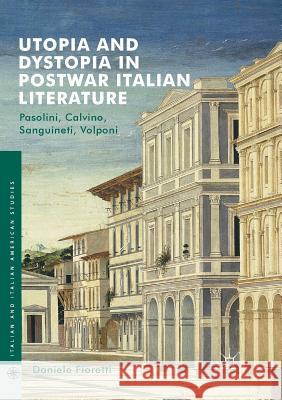Utopia and Dystopia in Postwar Italian Literature: Pasolini, Calvino, Sanguineti, Volponi » książka
topmenu
Utopia and Dystopia in Postwar Italian Literature: Pasolini, Calvino, Sanguineti, Volponi
ISBN-13: 9783319835419 / Angielski / Miękka / 2018 / 212 str.
Kategorie:
Kategorie BISAC:
Wydawca:
Palgrave MacMillan
Seria wydawnicza:
Język:
Angielski
ISBN-13:
9783319835419
Rok wydania:
2018
Wydanie:
Softcover Repri
Ilość stron:
212
Waga:
0.27 kg
Wymiary:
21.01 x 14.81 x 1.22
Oprawa:
Miękka
Wolumenów:
01
Dodatkowe informacje:
Wydanie ilustrowane











